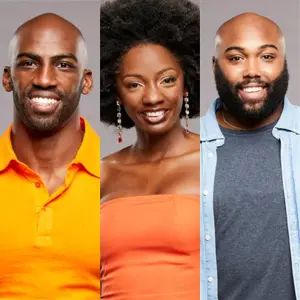Big Brother's first Black winner offers a diversity lesson for reality TV
-

In a dramatic finale Wednesday night, Big Brother crowned its first-ever Black winner in 23 seasons from finalists Azah Awasum, Derek Frazier and Xavier Prather, thanks to their all-Black "Cookout" alliance. Big Brother producers deserve credit for this milestone, says Neil J. Young. "Not only did they cast the most racially-diverse season ever, but apparently they found a way to avoid picking HouseGuests like those in previous seasons who made vicious racism, misogyny, and homophobia a regular feature of the series," says Young. "In fact, this may be the most important lesson of this season, not just for Big Brother but for reality TV more broadly: Casting people who aren't racist won't cut into the drama; it will refocus excitement around the gameplay itself. That's a needed lesson, because racism has been a standard feature of reality television for two decades. Instead of showcasing diversity, popular competition-based shows too often cast only one or two persons of color to serve as an early target for white players' alliances. On programs like Survivor, The Bachelor/Bachelorette franchise, and Big Brother, which all run on elimination votes, the token person(s) of color is regularly among the first to go home. Between 2002 and 2016, for example, not one African-American competitor on The Bachelor or Bachelorette lasted past the fifth week. Nearly 60 percent were cut in the first two weeks. Big Brother has a particularly troubling history on this front. For most of its run, the show's producers assembled an almost all-white cast, and most players of color were eliminated early in the game. In its previous 22 seasons, 19 of Big Brother's winners were white, and 14 of those were white men. (None of the three prior winners of color were Black.) For Black HouseGuests who stayed in the game past those initial weeks, the experience often proved worse than an early exit, as they endured racist and bigoted assaults from white castmates." Young adds: "Remarkably, though, it wasn't the disaster of 2019 that compelled CBS to overhaul Big Brother and the rest of its reality lineup. The network responded to Black Lives Matter protests with an announcement in November of 2020 that the casts of all its unscripted shows would be at least 50 percent BIPOC (Black, Indigenous, and People of Color) by the 2021-2022 broadcast season. That certainly shaped how this year's Big Brother played out. The show had never before featured six Black HouseGuests at once, and the support this season's players have shown for each other — as well as the show's unfolding Black win — ought to be a model for reality TV's handling of race and racism moving forward. Halting, perfunctory diversification efforts on other networks (like Bravo's addition of a few Black and Asian castmembers to its popular Real Housewives shows, which has mainly served to fuel racism plotlines) could use the positive role model."
TOPICS: Big Brother, CBS, Azah Awasum, Derek Frazier, Xavier Prather, African Americans and TV, Diversity, Reality TV
More Big Brother on Primetimer:- Phil Keoghan says Big Brother tactics weren't enough to win The Amazing Race 38
- Tucker and Eric fall behind in Greece and are sent home on The Amazing Race
- The Amazing Race season 38 episode 10 recap: Racers travel to Italy, exhausted by the heat and face a major setback
- "That would be really exciting": Big Brother's Rachel Reilly hopes to be cast on Survivor
